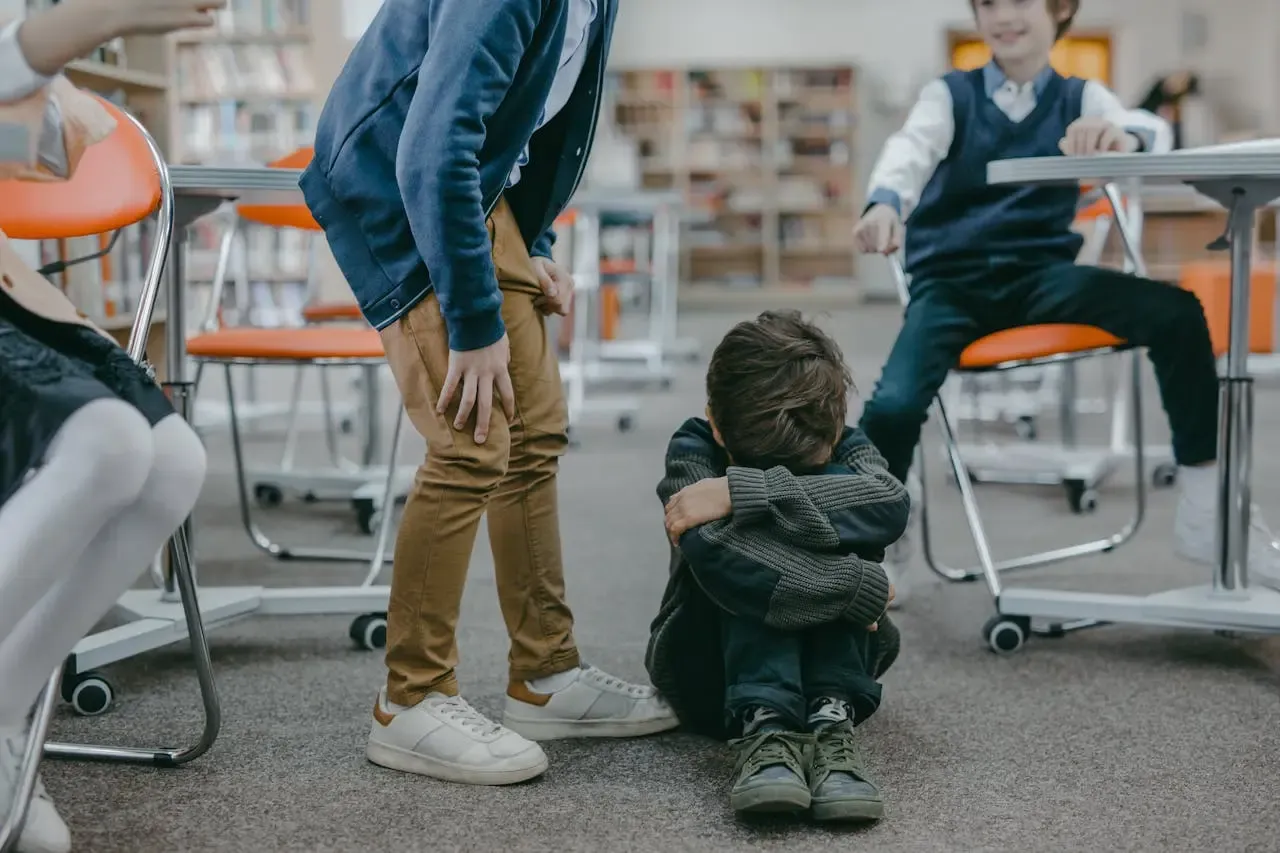How to Spot Signs of Bullying and What Parents Can Do to Protect Your Teen
Table of content
Bullying is something no parent wants to think about, but it’s a reality many teens face. Whether it happens at school, on social media, or even within their own circle of friends, bullying can have serious consequences for your child's well-being. The hard part is that bullying isn’t always obvious—it can be subtle, and often, kids are reluctant to speak up about it. This blog will help you recognize the signs of bullying, understand how it affects your child's mental health, and offer some practical tips on how you can intervene to stop it.

Signs Your Child Is Being Bullied
Recognizing bullying early is key to protecting your child. Here are clear signs that may indicate your child is being bullied:
● Unexplained Physical Injuries: Frequent bruises, cuts, or scratches without a reasonable explanation can be a sign of physical bullying. If your child is reluctant to talk about their injuries, it’s important to dig deeper.
● Sudden Loss of Friends or Social Withdrawal: If your child suddenly stops hanging out with their friends or becomes isolated, bullying could be a factor. Victims of bullying often withdraw to avoid further hurtful encounters.
● Frequent Complaints of Illness: Bullying can manifest physically. If your child often complains of headaches, stomachaches, or feeling unwell, it could be stress-related from bullying. Anxiety about facing bullies can lead to somatic symptoms.
● Decline in Academic Performance: A drop in grades or loss of interest in school can indicate emotional distress. Bullied children may struggle to concentrate or feel unsafe, making it difficult to focus on schoolwork.
● Changes in Behavior or Mood: Noticeable changes like irritability, sadness, or sudden anger can be linked to bullying. Children might react emotionally due to the stress and trauma of bullying experiences.
● Loss of Self-Confidence or Self-Esteem: Bullying often leads to feelings of inadequacy. If your child shows signs of poor self-image, self-doubt, or reluctance to participate in activities they once enjoyed, bullying might be the cause.
● Avoidance of Certain Places or People: If your child starts avoiding specific areas like the schoolyard, hallways, or bus rides, it might be due to the presence of bullies. This can be a sign of fear or intimidation.
● Unusual or Excessive School Absences: Bullying often causes children to skip school to avoid bullies. If your child is suddenly missing more school days than usual or trying to fake illness to stay home, it could be linked to bullying.
● Unexplained Loss of Personal Items: If your child’s belongings, such as clothes, lunch money, or electronics, go missing or are damaged frequently, it may be the result of bullying or harassment from peers.
● Expressing Negative Feelings About Themselves: Victims of bullying may express feelings of worthlessness or say things like “I don’t want to go to school” or “Nobody likes me.” These comments can be red flags for emotional distress caused by bullying.
How Bullying Affects Mental Health
Bullying can have long-lasting effects on a child’s mental health, often carrying into adulthood if not addressed. Here are the main ways bullying can impact mental well-being:
● Anxiety and Depression: Constant bullying can lead to feelings of fear, hopelessness, and isolation. It increases the risk of anxiety and depression, sometimes triggering panic attacks or eating disorders.
● Low Self-Esteem: Children may internalize negative comments from bullies, leading to poor self-worth, which affects their confidence, relationships, and overall happiness.
● Suicidal Thoughts: Bullying is linked to higher rates of suicidal thoughts and behaviors. Kids severely bullied may feel like there’s no way out, making it crucial to spot signs of distress early.
● Increased Risk of Substance Abuse: To cope with emotional pain, some teens turn to drugs or alcohol. Over time, this can lead to addiction and further mental health struggles.
● Difficulty with Relationships: Bullying can make it hard for kids to trust others. They may struggle socially, have trouble making friends, or avoid group activities due to fear of further harm.
What Parents Can Do to Address Bullying
As a parent, there are several steps you can take to help stop bullying and support your child:
1. Talk Openly: Approach the topic gently, encouraging your child to speak about their experiences without fear of judgment. Let them know you are there to listen and support them.
2. Document the Bullying: Keep track of incidents, including dates, times, and details of the bullying. This can be useful if you need to involve school authorities.
3. Report the Issue: Contact the school or any other relevant institution. Work with the staff to develop an action plan to protect your child.
4. Build Their Confidence: Help your child improve their self-esteem through positive reinforcement, skills development, and new hobbies.
5. Consider Therapy: If the bullying has taken a toll on their mental health, therapy can help your child process their feelings and regain control.
Final Thoughts
Bullying is a painful experience for any child, and its effects can last long after the bullying stops. As parents, we need to be vigilant in recognizing the signs and taking action to protect our children. By fostering open communication, being proactive, and supporting our kids emotionally, we can help them navigate these challenges and ensure their safety and well-being. If you suspect your child is being bullied, don’t wait—take action and get the support they need.
More Articles Like This
SPYX'S SOFTWARE INTENDED FOR LEGAL USE ONLY. You are required to notify users of the device that they are being monitored. Failure to do so is likely to result in violation of applicable law and may result in severe monetary and criminal penalties ...







Disclaimer: SPYX'S SOFTWARE INTENDED FOR LEGAL USE ONLY. You are required to notify users of the device that they are being monitored. Failure to do so is likely to result .....
